How the Garden Tower Project Works
This week I wanted to share with you a little bit how this Garden Tower Project works from behind the scenes. You may see our incessant pictures of Garden Towers in our Facebook group or Instagram. They hit our WhatsApp from Kenya almost every day! So, we share them with you, because we have many people who want to see the impact that the Garden Tower are making.
We have Garden Towers in 10 communities in Kenya. Each community is managed by a Community Director, who was hired to manage the program in their area.
The Community Director has several responsibilities, including managing the sewing and building teams. Our Programs Director, Marissa Waldrop, works very closely with each Community Director to make sure they have what they need to be successful. So, let's break down the Garden Tower process in 5 steps. :)
Create the Community Garden
In each area, we have a community garden where the seedlings are grown that are then transplanted to individual family garden towers. This requires a lot of seeds, access to clean water, and land. Each community has different challenges, so we work with the directors to make sure that we can overcome those challenges
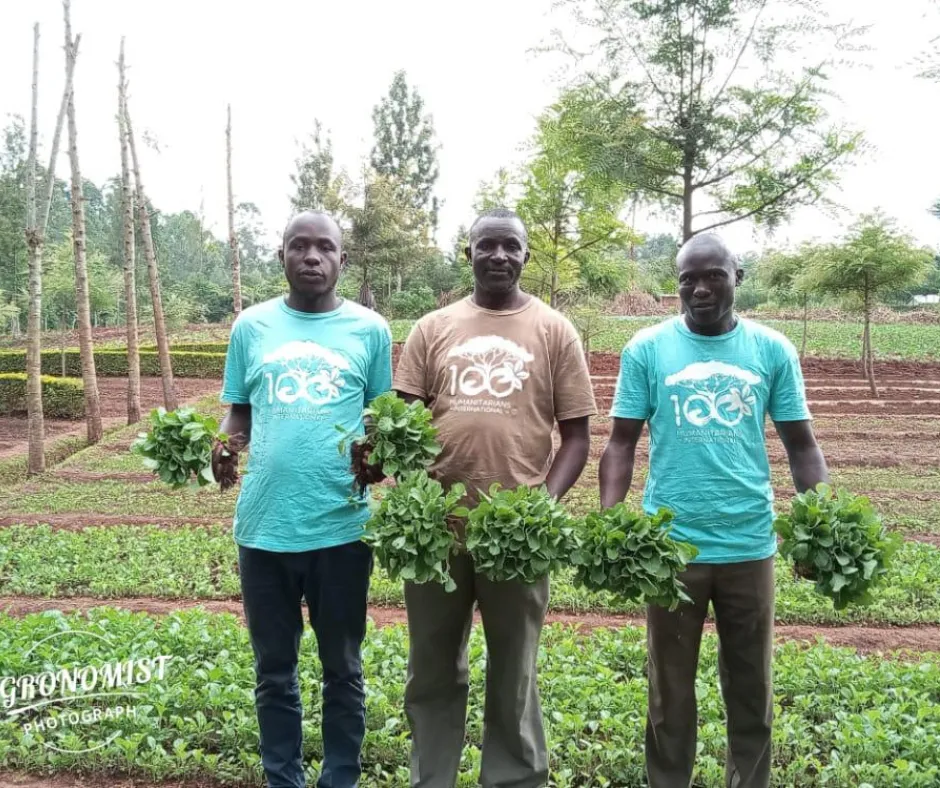
Identify the Families
The Community Director works with local tribal chiefs and government leaders to identify the neediest families, who also have the capability of growing their own food and managing the responsibilities that the Garden Tower requires.
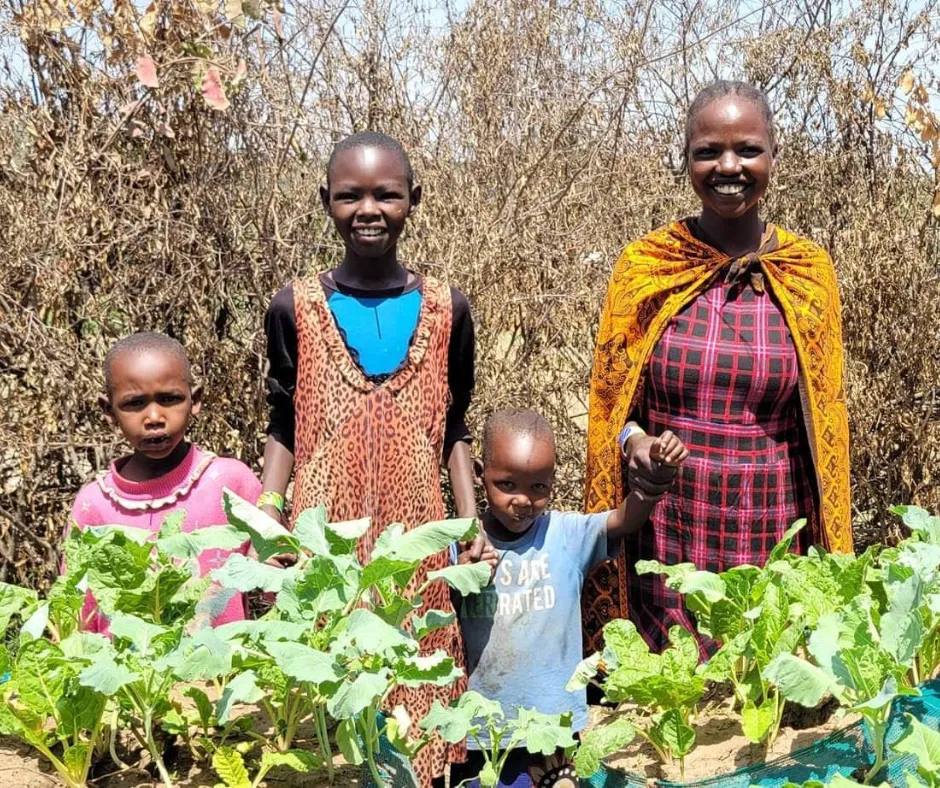
Coordinate the Cohorts
Each of the cohorts consist of between 20-25 families to keep things manageable. When the Garden Towers are ready for distribution, the families are gathered to a central area, and taught how to build and care for their Garden Towers.
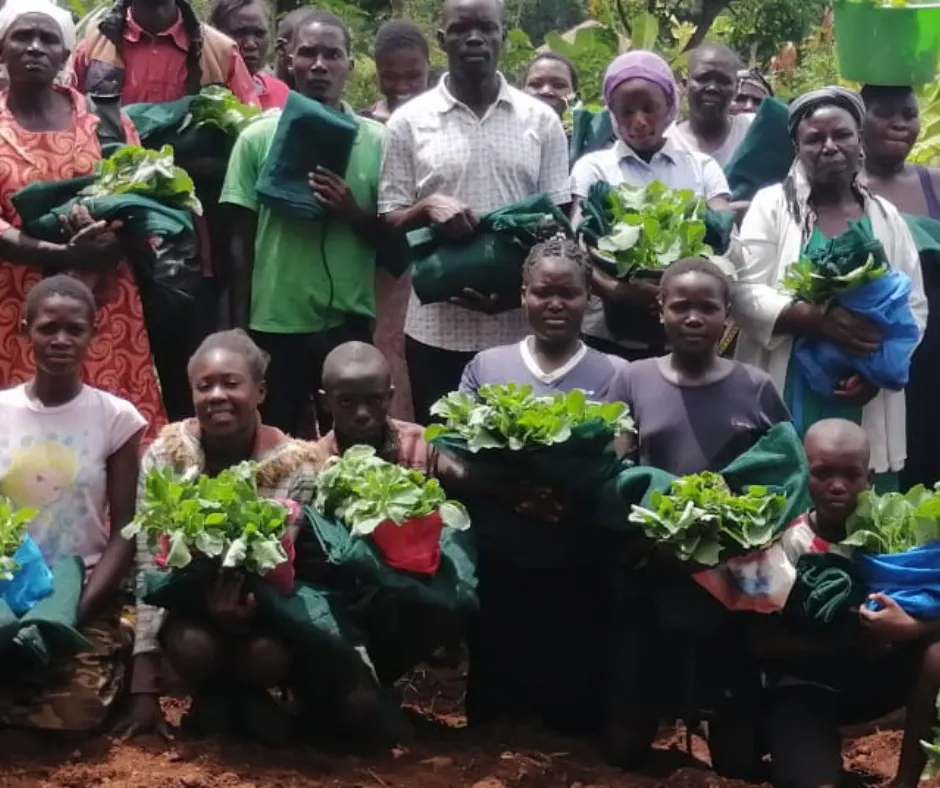
Sew the Garden Towers
The Garden Tower fabric is purchased in massive bulk rolls, and then distributed to our different communities. We order the fabric in bulk to get the best pricing. The Garden Tower fabric is cut, sewn, and the holes are either drilled or burned into the fabric for the seedlings. Each Garden Tower has 108 holes plus the top for planting, which equals about 120 plants.
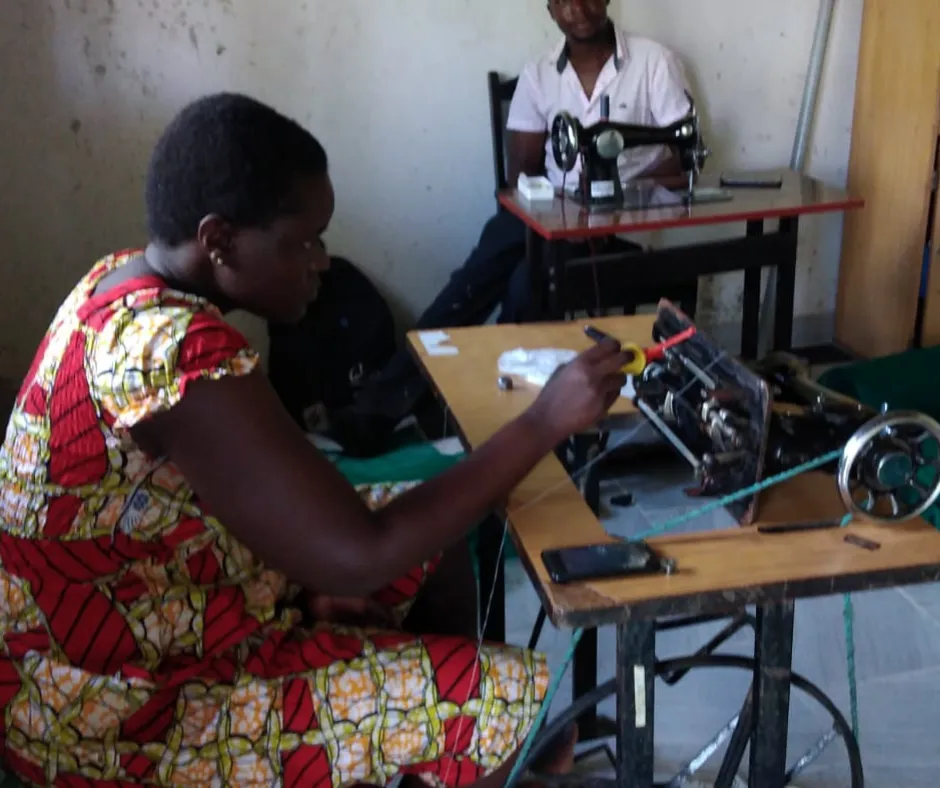
Build the Garden Towers
The building team goes to the family's home and helps them build the Garden Tower, takes pictures for documentation, and gathers the required information for our records. We track the names, family size, # of kids in school, biggest challenge, and water source.
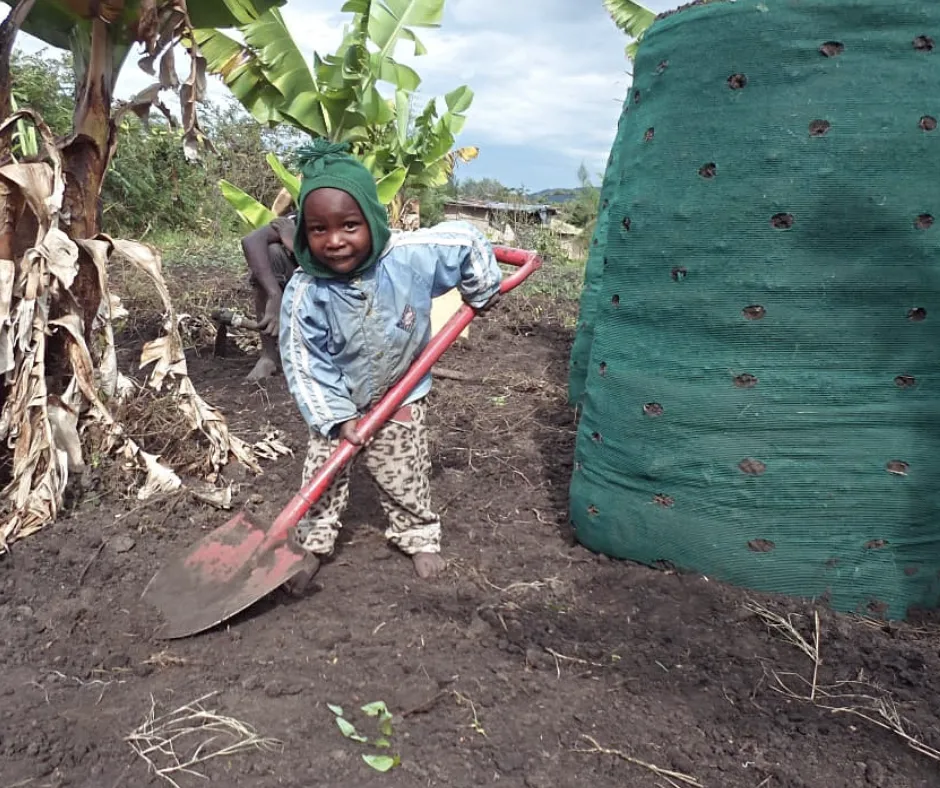
The Community Director then inputs the information on every family into our forms, and notifies Marissa that the families are documented. At that point, we send the payment for the director, the sewers, and the builders.
After 60 days, they choose a few families to go and get updates and see how they are doing and if the Garden Towers are producing food. They document how many meals the families are eating on a weekly basis, and they update the forms. They get pictures, videos, and share the stories with us. Then, we share those stories with you!
The Garden Tower Project doesn't just provide a family the ability to grow their own food and make additional money from selling the excess, it creates hope. It also provides a job for the Community Director, the sewers, and the builders. When you donate to the Garden Tower Project, this is what YOU make possible. This is how YOU make a huge difference in the lives of these families. So when we say that we have been able to build 12,000 Garden Towers in Kenya. It's a collective "we"!
The next time you donate to 100 Humanitarians International, please know that you are really donating to provide food, jobs, income, and hope to families in Kenya. Please know that you are helping families out of extreme poverty by supporting this program.
Get Involved
We rely on donors and volunteers to keep 100 Humanitarians International moving forward!
Sign up to get information on joining an expedition, attending events, or volunteering.
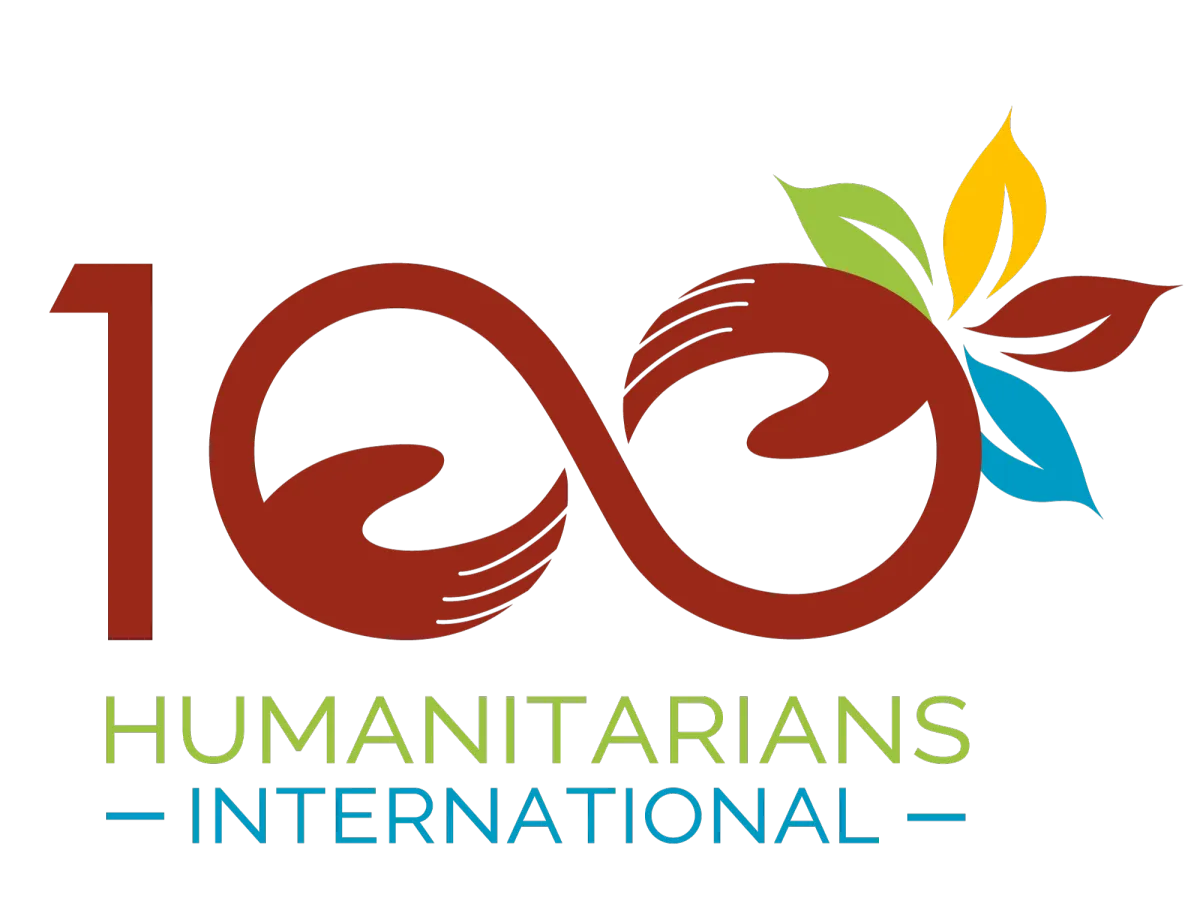
100 Humanitarians International is a 501(c)(3) nonprofit recognized by the IRS, and all donations to 100 Humanitarians International are tax-deductible in accordance with IRS regulations. EIN #82-1048388
South Jordan, Utah
801-432-0105
